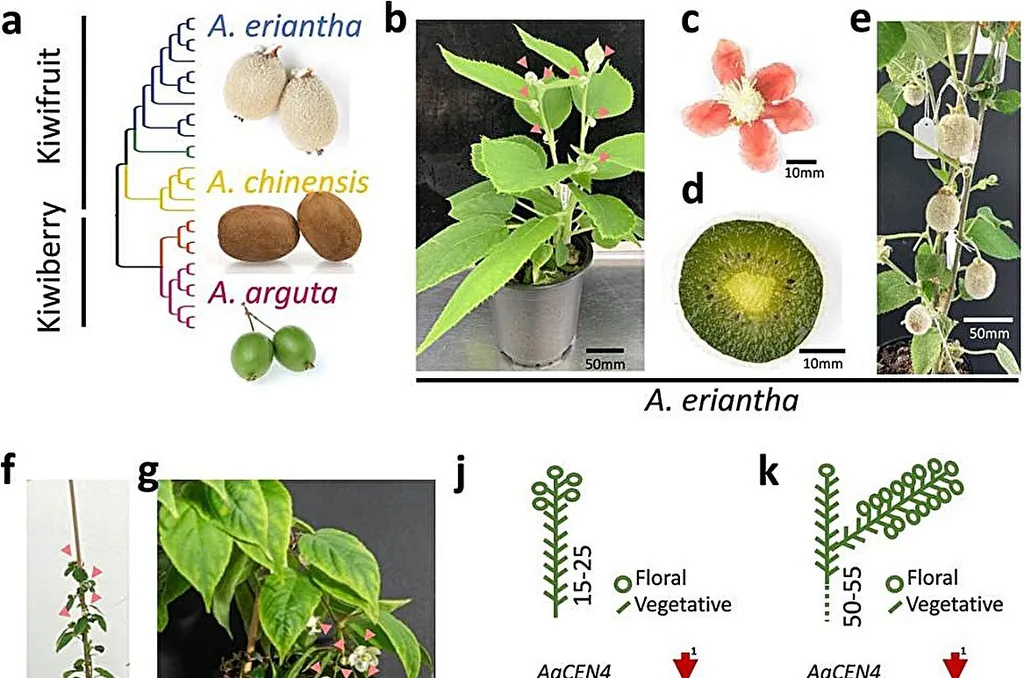In a groundbreaking development for the horticultural and agricultural sectors, researchers have devised a highly efficient method for genetically transforming kiwifruit, a crop of significant global economic and nutritional value. Led by Chun-Lan Piao from the Key Laboratory of Quality and Safety Control for Subtropical Fruit and Vegetable at Zhejiang A&F University in China, the study promises to revolutionize the way scientists approach genetic modification in kiwifruit, potentially accelerating the development of improved varieties.
The research, published in the journal ‘Plants’ (which translates to ‘Plants’ in English), addresses longstanding challenges in kiwifruit genetic transformation, including low efficiency, prolonged culture durations, and high labor demands. By utilizing leaf explants and two strains of *Agrobacterium* containing the pBI121-35S::GFP expression vector, the team achieved remarkable results. “We observed a 93.3% response rate from the leaf explants, with multiple independent adventitious shoots forming around the explants within just six weeks,” Piao explained. This is a substantial improvement over previous methods, which could take six months or more.
The transformation process was completed in just four months, a significant reduction in time that could greatly benefit commercial breeding programs. Over 71% of the kanamycin-resistant plantlets exhibited strong GFP expression, confirming the success of the genetic modification. Southern blot analysis further validated the stable integration of the GFP gene into the kiwifruit genome, while RT-PCR and fluorescence microscopy demonstrated sustained GFP expression in mature plants.
The implications of this research are far-reaching. “This efficient protocol for regeneration and transformation provides a solid foundation for micropropagation and the enhancement of desirable traits in kiwifruit,” Piao noted. The ability to quickly and efficiently introduce new genes into kiwifruit plants could lead to the development of varieties with improved disease resistance, better nutritional profiles, and enhanced yield potential.
For the commercial sector, this breakthrough could translate into faster turnaround times for new kiwifruit varieties, reducing the time and labor costs associated with traditional breeding methods. This could be particularly beneficial for the energy sector, as kiwifruit cultivation often involves significant resource inputs. By optimizing the genetic makeup of kiwifruit plants, researchers can potentially reduce the need for pesticides and fertilizers, making the crop more sustainable and cost-effective.
The study’s findings also open up new avenues for research into gene function and genome editing in kiwifruit. Scientists can now more easily investigate the roles of specific genes and develop strategies for gene silencing or overexpression to achieve desired traits. This could lead to a new era of precision breeding in kiwifruit, with the potential to address some of the most pressing challenges in the horticultural industry.
As the global demand for kiwifruit continues to grow, the need for innovative and efficient breeding techniques becomes ever more critical. This research by Piao and their team represents a significant step forward in meeting that need, offering a powerful tool for the genetic improvement of this important fresh fruit crop. With the foundation laid by this study, the future of kiwifruit cultivation looks brighter and more promising than ever.

